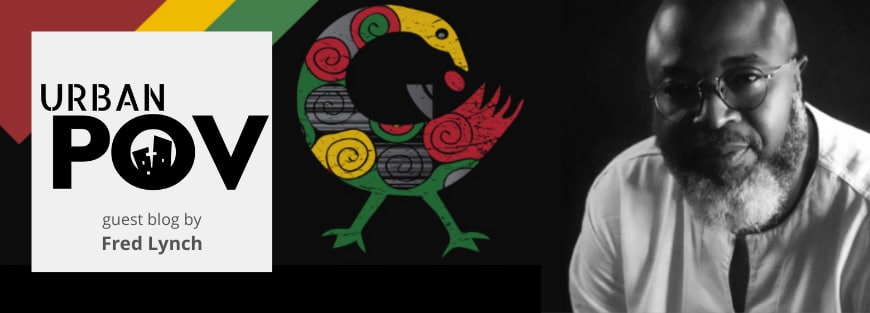Black History and Sankofa
Posted by: DVULI | February 22, 2021

The word Sankofa is derived from the Akan tribe in Ghana, West Africa. The literal translation weaves together three key words (san – to return; ko – to go; fa – to retrieve) to symbolize the importance of looking back and gaining the right perspective to move forward positively. For many, the month of February is a Sankofa experience highlighting the hard-fought lessons from Black History. Realizing that Black History is not just for February, what can youth workers “retrieve” from these lessons to help students properly move forward in their lives?
For years, my ministry style was, “Fire! Ready? Okay. Aim.” I experienced some hits, but the carnage of the many misses revealed how much I needed to learn. As I matured in ministry, I began to use this same Sankofa philosophy to help reinforce my efforts. Ministry became more of a joy that added to my life rather than an unrelenting energy drain to which I was indebted. As DVULI alums, we have discovered that Sankofa works for us, but how can we pass it on to our students? How can and why should we use the remainder of an “already gone month” as an appropriate object lesson for improving the future of urban youth? Blame it on the “hip-hop” within me, but I can’t help but employ a li’l wordplay to help “give you this feeling” as I impart the amazing task and opportunity that you have to share the word Sankofa with the students you serve!
First, understand that Black History lessons let us learn how America leans. Did you catch all the “Ls”? There will be plenty more incoming, so beware. Whether it’s 1619 vs. 1776 or the infamous “Martin vs. Malcolm” tension that mirrored the “W.E.B. Dubois vs. Booker T. Washington” of the previous generation, America undoubtedly leans more toward convenient myths than toward the honest, brutal truth of its origins. In 2012 amidst President Obama’s reelection campaign, the Associated Press, Stanford University, the University of Michigan, and the University of Chicago conducted research to explore the extent of American anti-Black bias. The results interestingly showed that 51 percent of Americans expressed explicit (open) anti-Black attitudes while 56 percent of Americans expressed implicit (unconscious) anti-Black attitudes (Rochester 12).
Understanding that “bias” is still a big part of how our culture navigates is a potent way to help students by galvanizing them with awareness and compassion. Jesus telling His followers to love their haters was certainly a high bar. Still, the empowerment discovered by the disciples by operating in love lifted them to the status of world-changers and not mere pawns in a bias-rigged society.
Second, notice how Black History lessons loop us into looking at what America longs for. (Told you the “Ls” were coming.) Capturing the groove in the midst of the loop, the reoccurring pattern that promises transcendence is what Jazz improvisation, freestyle rhyming, and the American dream are all about. Everybody dreams. The language of dreams in the American story isn’t shackled to the limited parameters of a crumbling dynasty of a few privileged powerbrokers. The language speaks to the dreamer in terms of what is longed for and not just commiserating on what is. I’m old enough now to see the language of my dreams and the dreams of those who came before me unfold and interpret into a better existence. Fredrick Douglas, my namesake, dreamed of the day in which you and I live. The students we serve are dreaming right now, and we must let them know that the language of dreams is not nonsense but God-sense! We indeed have a long way to go, but we are surrounded by a cloud of dreaming witnesses chanting out our names and calling us to that better life.
Third, remember that Black History lessons locate us in the lifework of liberation. It’s not your job, and it’s not enough to make your students feel good. The truth is that they will have many days that suck. Your job is to convince them not to just “take the worst” like a soldier, but to “use the worst” like a warrior to forge them into what it looks like to live life as more than a conqueror (Rom. 8:37). What does it mean to be “more than a conqueror”? The next step beyond conquering is liberating. This means that you have the entirety of Black History at your disposal to use to set the captive mind, heart, body, and soul free. When you discuss Fannie Lou Hamer, you identify with speaking truth to power. When you cite Maya Angelou, you evoke her conviction as a protective cloak. To know why Richard Allen matters is to embrace Black lives in the eternal tradition of offering safe sanctuary. Go back! Pick up these abundant gems and take them forward as living stones to help guide you on your way.
I told you the “Ls” were coming. So, as an emcee, lastly, I will lure you in with a ladleful of lyrical leftovers linked to Lynch’s lessons and lectures. Let’s live as levers, loving lessons deeply lodged within, which leads us as learners to levitate linear ledges, liquidating those loathsome edges of legend, giving the next generation a leg up.
I’m out.

